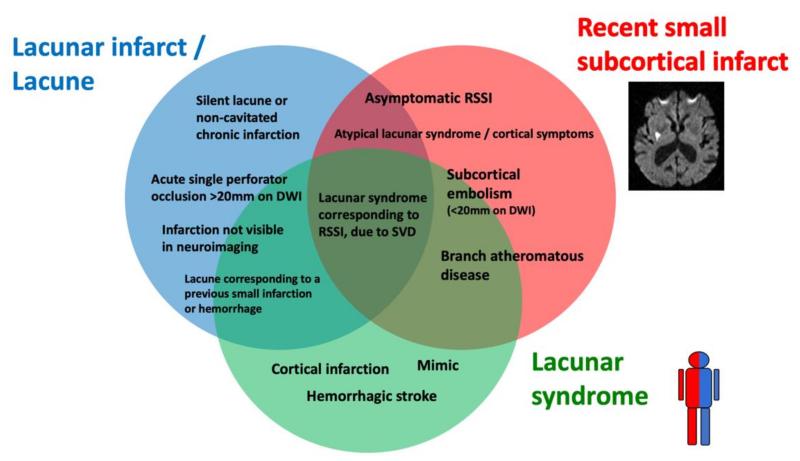What are the long-term effects of lacunar infarct?
Lacunar infarcts are small, localized areas of damage to the brain's deep structures, typically caused by the blockage of small arteries. The long-term effects of lacunar infarcts can vary based on the size, location, and extent of the infarct, as well as individual factors such as age, overall health, and pre-existing medical conditions. It's important to note that the information provided here is based on general trends, and individual experiences may differ. Common long-term effects may include:
Motor and Sensory Impairments: Lacunar infarcts can lead to motor and sensory deficits, affecting coordination, strength, and sensation in the affected areas. These impairments may result in difficulties with fine motor skills, walking, or overall mobility.
Cognitive Changes: Depending on the location of the lacunar infarct, cognitive functions such as memory, attention, and executive function may be affected. Some individuals may experience difficulties with concentration, problem-solving, or processing information.
Speech and Language Issues: Lacunar infarcts involving areas of the brain responsible for language may lead to speech and language difficulties. This can manifest as aphasia (difficulty in understanding or producing language) or dysarthria (difficulty in articulating words).
Emotional and Behavioral Changes: Some individuals may experience emotional and behavioral changes, including mood swings, depression, or anxiety. The impact on emotional well-being can vary widely among individuals.
Fatigue: Chronic fatigue is a common complaint following a lacunar infarct. Individuals may experience persistent tiredness and a decreased ability to engage in daily activities.
Risk of Recurrence: Individuals who have experienced a lacunar infarct may be at an increased risk of future strokes. Therefore, ongoing medical management and lifestyle modifications are crucial to reduce the risk of recurrence.
Functional Impairments: The cumulative effects of motor, cognitive, and sensory impairments may result in overall functional limitations, impacting the ability to perform activities of daily living independently.
Quality of Life: The long-term impact on an individual's quality of life can be significant, affecting not only physical and cognitive abilities but also social and emotional well-being.
Rehabilitation, including physical therapy, occupational therapy, and speech therapy, can play a crucial role in helping individuals recover and manage the long-term effects of lacunar infarcts. Medications and lifestyle changes, such as adopting a heart-healthy diet and engaging in regular physical activity, may also be part of the management plan.
It's important for individuals who have experienced a lacunar infarct to work closely with healthcare professionals to develop a comprehensive care plan tailored to their specific needs and challenges. Regular follow-up appointments and ongoing medical management are essential for optimizing long-term outcomes.
Lacunar infarcts are small, deep strokes that occur in the brain's white matter. They are caused by blockages in small arteries that supply blood to the brain. Lacunar infarcts are a common type of stroke, accounting for about 20% of all strokes.
Potential Long-Term Consequences of Lacunar Infarcts
The long-term consequences of lacunar infarcts depend on the severity and location of the infarcts. In some cases, there may be no noticeable long-term effects. However, in other cases, lacunar infarcts can lead to a variety of neurological problems, including:
Cognitive impairment: Lacunar infarcts can damage the parts of the brain responsible for thinking, memory, and language. This can lead to a range of cognitive problems, from mild forgetfulness to severe dementia.
Motor impairment: Lacunar infarcts can damage the parts of the brain responsible for movement. This can lead to a range of motor problems, from weakness and clumsiness to paralysis.
Sensory impairment: Lacunar infarcts can damage the parts of the brain responsible for sensation. This can lead to a range of sensory problems, from numbness and tingling to blindness and deafness.
Other problems: Lacunar infarcts can also increase the risk of other health problems, such as depression, anxiety, and falls.
Impact on Neurological Health
The impact of lacunar infarcts on neurological health can vary from person to person. Some people may experience only mild symptoms, while others may experience more severe symptoms that impair their daily life. The severity of the symptoms also depends on the location of the infarcts. For example, infarcts in areas of the brain responsible for movement are more likely to cause motor impairment, while infarcts in areas responsible for thinking are more likely to cause cognitive impairment.
Rehabilitation Methods and Therapies
There are a number of rehabilitation methods and therapies that can help people with lacunar infarcts improve their neurological function. These include:
Physical therapy: Physical therapy can help people with lacunar infarcts improve their strength, balance, and coordination.
Occupational therapy: Occupational therapy can help people with lacunar infarcts learn new ways to perform everyday tasks.
Speech therapy: Speech therapy can help people with lacunar infarcts improve their communication skills.
Cognitive rehabilitation: Cognitive rehabilitation can help people with lacunar infarcts improve their memory, thinking, and problem-solving skills.
Medications: Medications can be used to treat some of the symptoms of lacunar infarcts, such as pain, spasticity, and depression.
In addition to these specific rehabilitation methods and therapies, there are a number of general lifestyle changes that people with lacunar infarcts can make to improve their neurological health. These include:
Eating a healthy diet: A healthy diet can help to reduce the risk of stroke recurrence.
Exercising regularly: Exercise can help to improve brain function and reduce the risk of stroke recurrence.
Maintaining a healthy weight: Maintaining a healthy weight can help to reduce the risk of stroke recurrence.
Quitting smoking: Smoking increases the risk of stroke recurrence.
Controlling blood pressure: High blood pressure is a major risk factor for stroke, so it is important to control it with medication or lifestyle changes.
Controlling cholesterol: High cholesterol is another risk factor for stroke, so it is important to control it with medication or lifestyle changes.
By following these tips, people with lacunar infarcts can help to improve their neurological health and reduce the risk of stroke recurrence.











